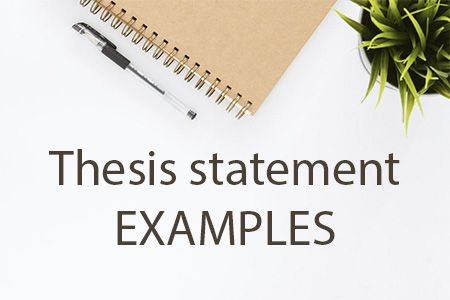How to Write a Thesis Statement
Publication Date: 19 May 2022
Three things are important in an essay: a thesis statement, an argument, and a conclusion. Out of these three, it is the thesis that is the key element, because it sets the course for the essay and determines the arguments with the corresponding conclusions.

Definition of a Thesis Statement – What Is It
The thesis statement is the starting point in your reasoning on a given topic. To simplify, a thesis statement is what you would like to speak about as part of the essay.
If you are writing an essay on a given topic, then the thesis statement is the key idea that is embedded in the text. If you choose the topic of the essay yourself, you have more opportunities for formulating a thesis statement.
The word “thesis” comes from Greek, and it literally means “statement”. It is used in linguistics, philosophy, medicine, music, and literature. It is widely used in college studies, where it is most commonly defined as a summary of the main ideas of the paper.
In a narrow sense, a thesis statement is an abbreviated version of a scientific article that conveys in a compressed form the essence of a more voluminous work.
Types of Thesis Statements
Depending on the specifics, parameters, and structure of the material used to write an essay, thesis statements can be:
- Basic. They represent central provisions and main conclusions;
- Simple. Based on key points – assertions or denials – without explanation. Serve as a basis for the main point;
- Complex. This is a combination type, which consists of simple and basic types. Complex thesis statements contain argumentation according to the indicated provisions and proofs.
Formulation of a Thesis Statement in an Essay
Give a dog a bad name and hang him. This famous proverb means that the way you formulate a thesis will determine the success of your essay. There can be more than one thesis statement in an essay. The standard number of theses for an essay is from 2 to 5. To determine the exact number of theses, you need to focus on the required amount of work. The larger the text, the more theses you should formulate.
However, the very first thing you should focus on before writing a thesis statement in an essay is always the topic. All theses should be related to the topic and represent the main idea of the work.
Thesis Formulation Algorithm
There is a universal algorithm that helps to correctly formulate a thesis statement in an essay. It has only four points:
- Target. You need to decide why you are convincing the reader of the truth or falsity of the statement. To do this, it is desirable to clearly define your target audience. Your thesis statement must be interesting to the readers; otherwise, they will not read further.
- Collection of information. You can write a good essay only if you have read a sufficient amount of literature on the topic before. In the process, you will be able to relate your own work (essay) to someone else’s and you will understand how relevant what you write is.
- Keywords. In any academic paper, it is important to define keywords that will be anchor points and the skeleton of the entire work. A college essay is no exception.
- More specifics. Common words and phrases in a thesis statement are a bad idea. Specificity helps to avoid misunderstandings and establish contact with the audience. Similarly, it is worth not to use very obvious things in formulating a thesis statement, otherwise, you will not have anything to prove or refute.
Examples of a Thesis Statement in an Essay

- “There are many talents, but few geniuses”;
- “From birth, all people are kind, but they become cruel because of the imperfection of the world”;
- “Children who do not understand their fathers repeat their mistakes and add their own to them.”
- “I believe that love does not always fill a person’s heart with happiness, sometimes it can destroy a person’s life.”
- “Willpower, in my opinion, is our main ally in the fight against our own weaknesses.”
How to Support a Thesis Statement
The last stage, which is a part of every thesis formulation algorithm, is argumentation. An argument is a statement related to a thesis statement that proves or refutes it. All this should happen within the framework of the topic.
The arguments can be represented by examples from the environment, examples from literary sources, and personal facts.
There is no doubt that the arguments of a thesis statement in an essay are a necessary component. Without argumentation, a thesis statement will not mean anything.
Argumentation can be of two major types: psychological and logical. Psychological argumentation is based on feelings, appeals to emotions, universal values, etc. In the case of logical argumentation, the author is guided by reason and common sense. Logical argumentation is based on knowledge and facts.
Also, in the process of argumentation, one must keep in mind the value of one or another argument. All the arguments in a paper must be ranked by their importance and appear in the text by the order of importance. Readers begin discovering arguments by starting with the most important one and finishing off with the least important arguments. This is the way their attention works.
If an argument stipulates referring to a literary work, then the author should identify the characters, the features of their speech and actions, and indicate the connection of all of the above with the topic.
One can also support a thesis statement with the help of proverbs, sayings, and aphorisms, which will make it more figurative and open to interpretation.
Please note that argumentation based on examples from life – both personal and public – is usually rated lower. This is because they are easier to pick up. Nevertheless, such arguments tend to be more understandable to readers.
How to Write a Strong Thesis Statement?
To sum up, let’s articulate what characteristics a strong thesis statement must have:
- A strong thesis statement should be specific – it should reflect only what will be touched upon in the essay
- A strong thesis statement should be accompanied by specific facts
- A strong thesis always refers to a specific position
- A strong thesis statement reflects only one main idea
- A strong thesis statement provides a basis for discussion
- A strong thesis has a clear and specific rationale
- When writing your thesis, avoid vague general terms such as “interesting,” “negative,” “exciting,” “unusual,” and “difficult”
- Also avoid abstract words like “society,” “values,” or “culture.”





